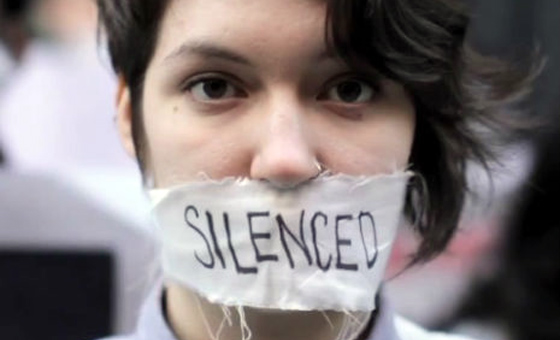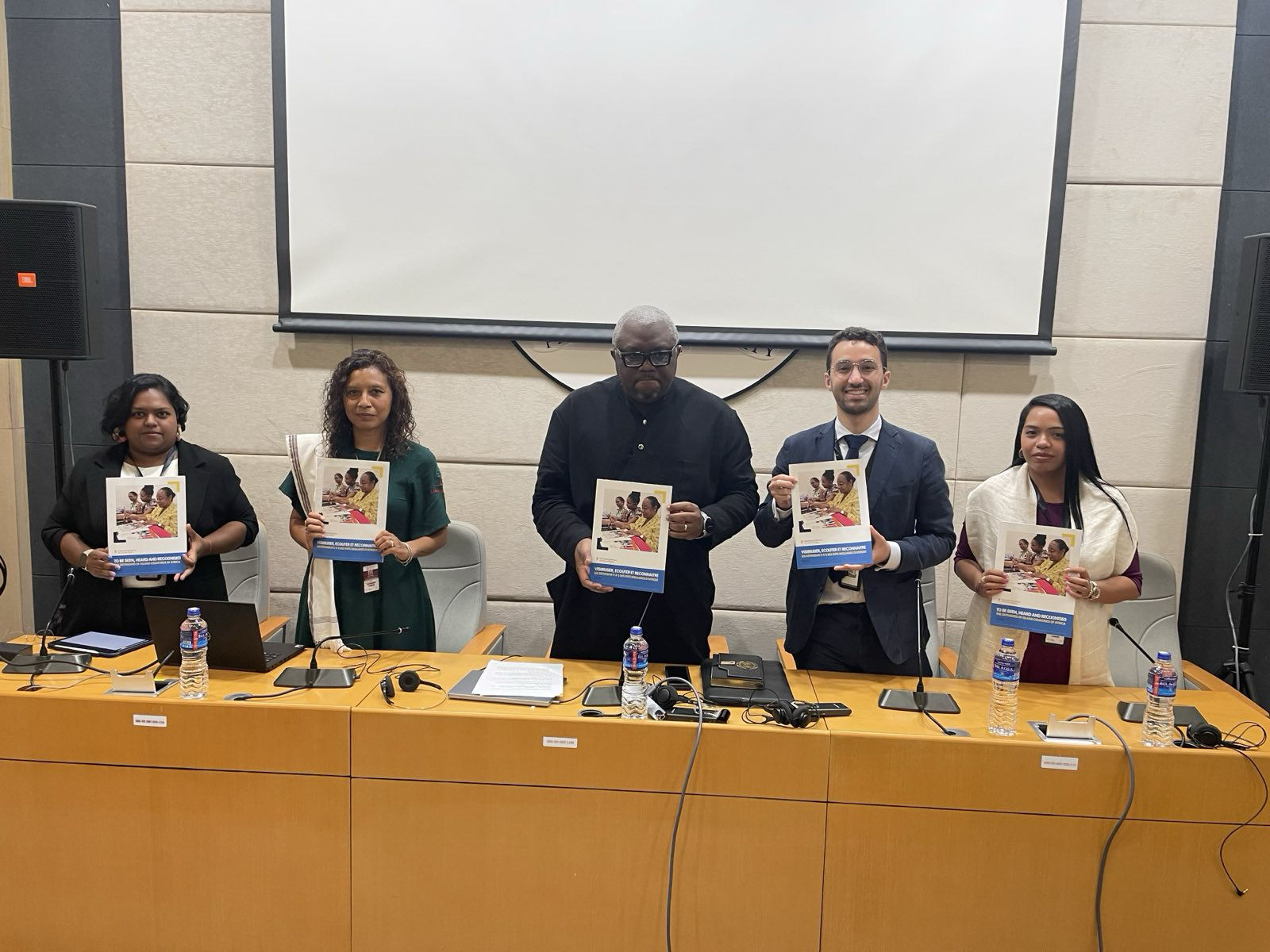
Egypt: Reform unjust vice laws, guarantee open civic space
During Egypt's UPR adoption at HRC59, Nora Noralla delivered a joint statement on behalf of ISHR, Cairo 52 and Middle East Democracy Center. Watch and read the full statement below.

The Governments of Azerbaijan, China, Cuba, Pakistan, Russia, Iran, and Venezuela have a lot in common. Besides imposing an ever-tightening noose around domestic civil society, they are all seeking election to a UN body that regulates civil society access.
As published in the Global Post on 8 April 2014:
The Governments of Azerbaijan, China, Cuba, Nicaragua, Pakistan, Russia, Iran, and Venezuela have a lot in common. Besides imposing an ever-tightening noose around domestic civil society in recent years, all of them plan to run for election to a United Nations (UN) body that regulates civil society access. A seat on the “Committee on Non-governmental Organizations” is highly desirable as it means controlling which civil society groups secure the coveted ‘consultative status’, a standing which bestows special UN rights and privileges to organisations that obtain it. Elections to the 19-member Committee take place April 23-25.
On its face, the Committee’s function is primarily administrative – it evaluates about 600-700 applications of non-governmental organisations (NGOs) annually. In reality, the job is highly political as Committee members can block NGOs whose views they do not agree with. Unsurprisingly, human rights defenders are disproportionally targeted by these gatekeepers; and in particular, activists working on women’s rights, sexual and reproductive rights, LGBT rights, minorities, and human rights situations in specific countries of a Committee member or one of its allies (of 48 organizations denied accreditation since 2012, 46 work on human rights).
Human rights defenders are experiencing some of the worst restrictions and attacks in decades in many of the States seeking a seat on the Committee. According to the Chinese Human Rights Defenders (CHRD), China criminally detained more than 220 human rights defenders in 2013, almost triple the amount from 2012. Human Rights Watch reported that, in 2012, the Russian government “unleashed the worst political crackdown” since the post-Soviet era. The governments of Azerbaijan, Cuba, Iran, Nicaragua, Pakistan, and Venezuela are also well-known for inhibiting and intimidating civil society.
Despots draw from a tool box of intimidation techniques to hinder the work of human rights groups domestically, and use similar measures at the UN. Anti-civil society States can essentially filibuster an application for years with repetitive questions that go far beyond the scope of information required for granting status. Eventually some NGOs, after spending years of effort and resources on the protracted process, have no choice but to give up. For those lucky enough to obtain status, the harassment does not stop. A number face the spectre of expulsion from the UN for “politically motivated acts against the Member States” – an undefined notion at usually referring to an NGO’s criticism of the human rights record of a country (no points for guessing which ones).
Despite its small size (19 members) relative to the number of UN Member States (193), the Committee has been a magnet for repressive regimes for countless years. Russia/USSR has held a seat on the Committee since its inception in 1946. So has Cuba except for six years. And China has served 16 of the last 20 years. The clamouring of dictators for a spot on the Committee begs the question of why democratic States aren’t also seeking seats with parallel passion. Only the United States and the United Kingdom have invested comparable resources as the anti-civil society cohort over the past seven decades.
This year the presence of strong, pro civil society candidates on the elections roster is dismal and limited to Greece, Israel, the US and Uruguay. Unless additional democratic States throw their hat in the ring, the Committee’s membership will worsen considerably during the next term. The situation could deteriorate further depending on the African candidates who have not yet confirmed their candidacies.
The International Service for Human Rights, along with other leading human rights organisations, has called on moderate, open and accountable democratic governments in all regions to put themselves forward for election. So far, only Uruguay has heeded the call. It is a disgrace that others, such as Argentina, Canada, Costa Rica, Chile, Cyprus, Czech Republic, Maldives, Mexico, Japan, Republic of Korea, and Poland – are unwilling to share the ‘burden’ of ensuring that civil society can access the UN.
Human rights defenders need consultative status so they can attend and speak on the record publicly at UN meetings and organise side events. But securing consultative status is not only about obtaining a speaking slot, a room booking, or a front row seat at negotiations. Human rights defenders have the right to tell their stories, to give voice to victims of violations, and to ensure that policies made at the UN are informed by these realities. Given this, is it fair that repressive governments be the ones to decide for whom the UN’s entrance door is opened and on whom it will be slammed shut? Indeed, those that silence defenders at home must not be given free rein to do the same at the UN. By acquiescing to such a scenario, democratic States are, in effect, leaving the foxes to guard the henhouse.
Status of regional slates and candidates for election to ECOSOC Committee on NGOS, as of March 31:
Asia: (4 vacancies, 4 candidates) India, China, Pakistan, Iran
Eastern Europe: (2 vacancies, 2 candidates) Azerbaijan, Russia
Latin America and Caribbean (GRULAC): (4 vacancies, 4 candidates) Cuba, Nicaragua, Uruguay, Venezuela
Western European and Other States (WEOG): (4 vacancies, 4 candidates) US, Turkey, Israel, Greece
Africa: (5 vacancies) Not yet known
Contacts: Michelle Evans, [email protected], Programme Manager and New York Advocacy Coordinator

During Egypt's UPR adoption at HRC59, Nora Noralla delivered a joint statement on behalf of ISHR, Cairo 52 and Middle East Democracy Center. Watch and read the full statement below.

The 59th session of the UN Human Rights Council (16 June to 9 July 2025) will consider issues including civil society space, climate change, sexual orientation and gender identity, violence and discrimination against women and girls, poverty, peaceful assembly and association, and freedom of expression, among others. It will also present an opportunity to address grave human rights situations including in Afghanistan, Belarus, China, Eritrea, Israel and oPt, Sudan, Syria and Venezuela, among many others. Here’s an overview of some of the key issues on the agenda.

On 4 May 2025, on the sidelines of the 83rd Ordinary Session of the African Commission on Human and Peoples’ Rights (ACHPR) in Banjul, ISHR officially launched its new report on the situation of human rights defenders in the African island states: Cape Verde, Comoros, Madagascar, Mauritius, São Tomé and Príncipe, and Seychelles.